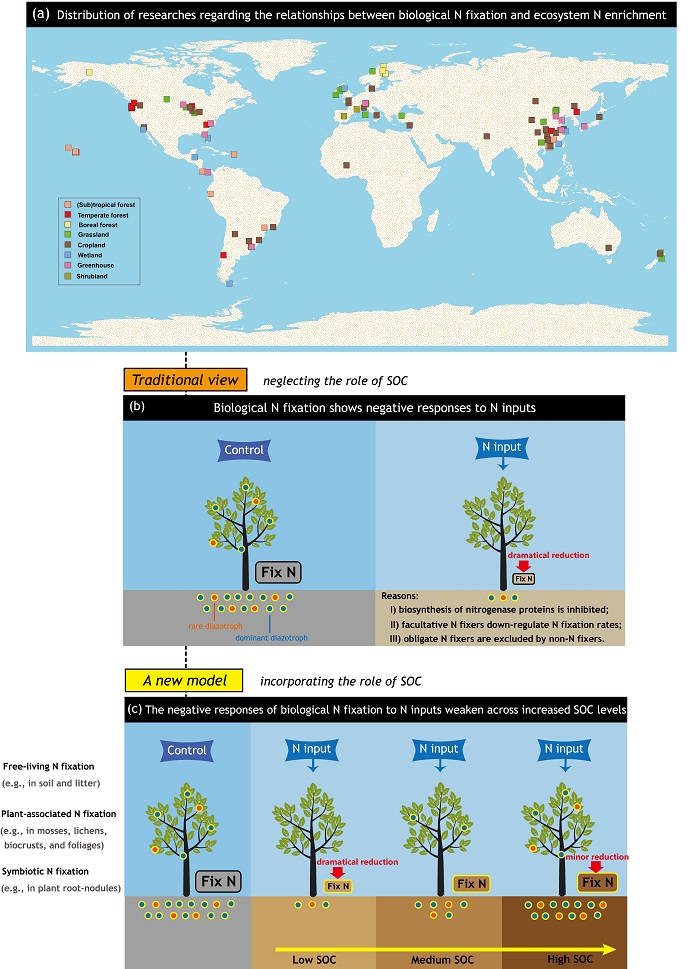Negative responses of terrestrial nitrogen fixation to nitrogen addition weaken across increased soil organic carbon levels
It is generally thought that biological nitrogen (N) fixation is energetically expensive and facultative N fixers reduce N fixation rates while obligate N fixers are excluded as soil N becomes rich. However, this view contradicts the observation that N fixation does not decline in many terrestrial ecosystems under N enrichment. Based on meta-analysis method, Dr. Mianhai Zheng and his colleagues analyzed N fixation and diazotroph (N-fixing microorganism) community structure in response to N addition across terrestrial ecosystems.
They found that the negative responses of multiple N fixation types (free-living, plant-associated, and symbiotic N fixation) to N addition weaken across increased SOC levels. The negative effects of N addition weaken on facultative N fixation but not on obligated N fixation, which is related to the difference in N fixation strategy. The negative responses of diazotroph community structure (abundance and diversity) to N addition also weaken across increased SOC levels. Among the soil and climatic factors, SOC is the most important predictor regarding the responses of N fixation and diazotroph community structure to N addition.Their findings indicate that biological N fixation in the ecosystems with rich SOC can remain active while biological N fixation in those ecosystems with poor SOC may decline dramatically under N deposition scenarios.
The above findings have been published online in Science of the Total Environment, with the linked paper below: https://www.sciencedirect.com/science/article/pii/S0048969723015838

Figure 1. The traditional view versus a novel model regarding the relationships between biological nitrogen (N) fixation and ecosystem N enrichment.
File Download: